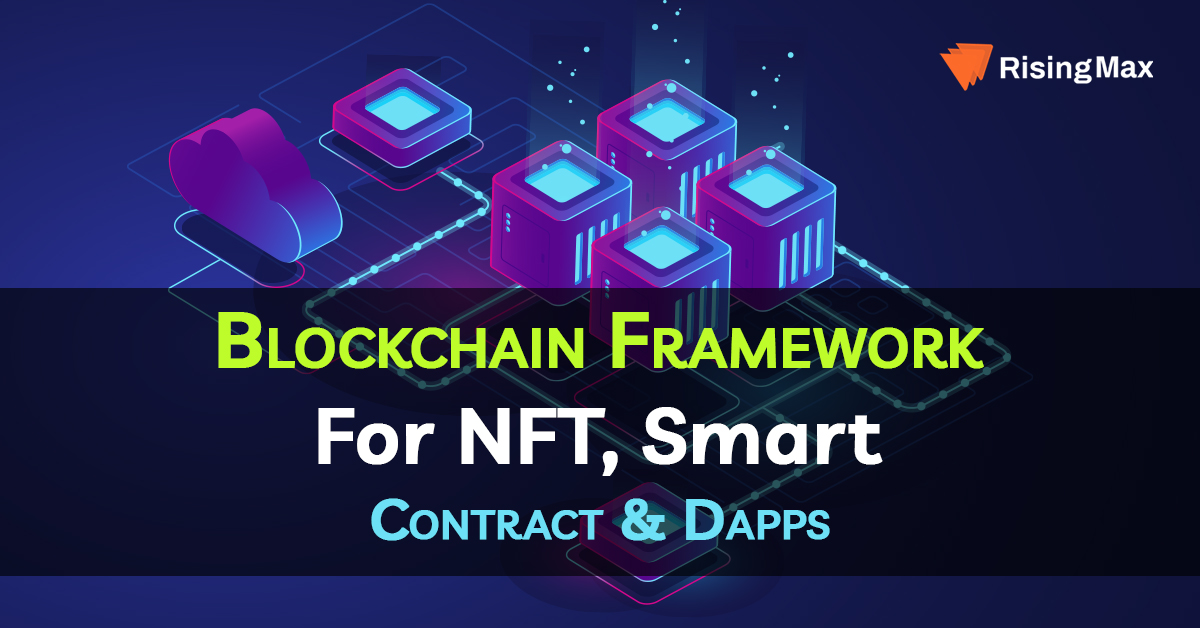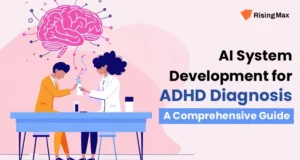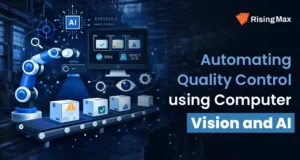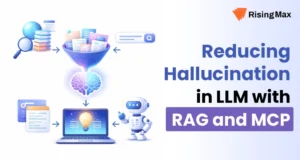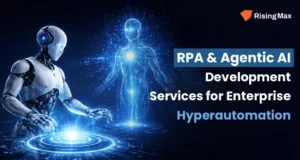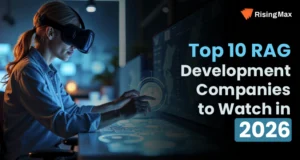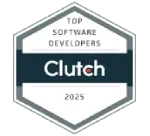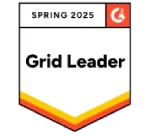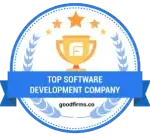Blockchain frameworks are the backbone of high revenue-generating applications based on NFTs, cryptocurrency, and other digital assets. The frameworks offer high security and transparency for application development.
RisingMax has already developed an advanced, feature-rich, and most powerful NFT marketplace on Solana. Recently we have launched a crypto wallet and P2E platform. We have a large team of blockchain experts. Request a call back to discuss your requirements.
Blockchain technology is used in all spheres of business, no matter you are creating an application for finance, healthcare, commerce, or agriculture. Adopting blockchain technology ensures quick and hassle-free development in every sphere. You can select the framework which is the best fit for your business project.
Undoubtedly, having a blockchain-based project is a complicated job that needs a team of experts and the right assets. If you are brainstorming to create your blockchain-based application, you don’t need to look further as you are at the right place now.
Having delivered more than 25 projects designed using different blockchain frameworks, we at RisingMax know all the do’s that works for delivering a successful application.
In this blog, we have enlisted the widely used blockchain platforms at present, including features and benefits. Before jumping ahead, let’s overview the blockchain frameworks and why they are requisite for today’s digital businesses.
Solana Blockchain & Smart Contract Development Company
Blockchain Frameworks and its Types – A Trending Technology
Blockchain frameworks are meant for offering simplified development solutions for creating a complex project. The framework offers a better development rate for creating a high-performance and stable application.
Blockchain frameworks are divided into three types:
Public: Public networks are costly compared to other types but works slowly. That’s the reason that public blockchain frameworks are not the right choice for a startup. It allows anyone to enter at any level, including token trading, mining cryptocurrency, etc.
Private: Private frameworks are not public but shared between the trusted parties. Private networks are the fastest ones with zero latency.
Permissioned: The networks allow limited participation but are visible to the public. Permissioned networks are fast and possess high storage capacity compared to the rest. The frameworks also have the least latency. All these qualities increase the demand for permissioned frameworks.
Cost To Develop & Launch A Blockchain Technology-Based NFT Marketplace
How Blockchain Frameworks Ensure a Robust Product?
The promising blockchain frameworks come with the following advantages:
- Blockchain frameworks mean an all-in-one solution for aspiring businesses. Blockchain frameworks help track all the transactions executed securely and on the platform.
- Unlike other platforms, the blockchain platforms proved to be efficient from day one. The stakeholders have the opportunity to interact with the customers directly. And it eliminates the need for intercessors.
- Data modification is impossible, so there is no fear of misusing digital assets and transactions.
- Each one present on the blockchain network experience the same level of transparency. Everyone knows what is done on the platform.
Cryptocurrency Exchange Development Software Cost
List of Most Popular Blockchain Frameworks
1. Ethereum – Widely Used Blockchain Framework of 2022
Ethereum is the first-ever technology for implementing blockchain concepts based on smart contracts. Ethereum rapidly got popularity when supported by IBM, Microsoft, and many other big names. Developers can smoothly deploy decentralized applications using Ethereum. Nowadays, NFT marketplace development are widely dependent on ethereum platform.
Ethereum blockchain framework has the following main features:
EVM: The Ethereum blockchain framework can seamlessly integrate with an rpc node provider, enabling efficient interaction between Dapps and the Ethereum network. When working with EVM, no separate framework is required for each language; the same blockchain framework supports all languages. The high compatibility of the EVM makes the development process easy and simple.
Smart Contracts: A smart contract is a program that enables the digital exchange between two parties without any interference from a third party. The smart contracts comprise the terms and conditions agreed by both peers. The key feature that makes smart contracts unique is once a smart contract is executed, it cannot be changed.
Dapps: Dapps are based on smart contracts and use a public blockchain network. Decentralized applications serve various purposes like digital signatures, transfer of assets, predicting the stock market trends.
Real-World applications of Ethereum Framework:
- Voting systems are adopting Ethereum, ensuring a transparent and publicly available result.
- Banking Systems incorporate decentralization using ethereum technology as it offers high security from hacking and supports secure payments.
- Ethereum deployment in shipping helps in keeping track of the cargo.
- Ethereum is useful in creating digital agreements and recording for the industries prone to disputes and needs digital contracts.
2. Hyperledger – Popular Blockchain Frameworks for Dapps
Linux foundation came with the most promising blockchain framework called Hyperledger in 2015. Many big companies participate in Hyperledger like Cisco, IBM, LSE, and CME. It is open-source without any support for cryptocurrency.
Hyperledger is actually like an ecosystem built for communities and developers to collaborate on blockchain technologies. It is used for various applications for healthcare, finance, IoT, etc. The framework follows the umbrella strategy. It is a set of libraries, interfaces, and frameworks.
The different hyperledger frameworks are:
- It is used for identity management and authentication, being a permissioned network.
- The food supply chain has become more transparent by incorporating the hyperledger framework.
- The pharmaceutical industry is reaping the benefits of hyperledger, like improved credit evaluation and faster payments.
- IoT depends on the Hyperledger for a strong backbone of networks offering a strong protocol for management.
We have already developed the clone of the below apps

The most popular and commonly used Hyperledger frameworks are :
Hyperledger Fabric: It is a plug-and-play technology for creating heavy and complex blockchain applications. These are also known as chain codes and are more flexible than the standard smart contracts.
Hyperledger Iroha: It is suitable for building mobile applications. Many Japanese contributed to building this project. It enables easy implementation in the already built solution.
Hyperledger Burrow: Monax and Intel put efforts together to design this project. Burrow is a permissioned ethereum network. It is like a virtual machine working with ethereum specifications.
Hyperledger Indy: Its key functions are online authentication for systems based on distribution registries.
3. Openchain – best blockchain framework for smart contract
Coinprism launched an openchain framework for controlling digital properties. The open-chain framework is popular for its anti-fraud and anti-money laundering features. All the financial processes are safe and secure based on the openchain framework.
It is a perfect choice for optimizing an organization’s infrastructure to meet different needs related to banking and finance services. It offers a client-server architecture which more reliable and proficient than the p2p architecture.
Following are the distinctive features of the open-chain framework:
- Oppenchain depends on smart contract modules.
- Tokens can be coupled with bitcoin via sidechains.
- Open chain framework possesses a unified API that enables you to interplay with different instances of the openchain framework.
- It is a private network supporting javascript language.
Real-world applications of openchain framework:
- It is used for various projects by almost 14 organizations like Adobe, Hitachi, GitHub, Toyota, Sony, etc.
4. EOS – Blockchain Development Framework
EOS, an open-source platform, was launched in 2018 for decentralized applications(DApps). Seeing the high revenue generation, many investors trusted EOS from the initial days. EOS is based on a unique approach for equity participation.
In simple words, the investors who bought 20% tokens of the startup launched based on EOS, and then he became the owner of the 20% of resources of the project, including income, copyrights, property, etc.
Due to the attractive features of the framework, the developers successfully raised more than $2 billion by reselling the tokens in small portions. So, we can say that the framework can generate huge profits. EOS blockchains are faster and more affordable than other traditional apps. Based on the stats, we can say that the EOS framework is the champion of the blockchain industry.
So, if you are interested in creating a DApp for your business case, you can collaborate with our team of experts!
Unique features of EOS framework:
- EOS framework has the capability to solve the scalability using bitcoin and ethereum.
- The platform has an EOS forum that offers developers and investors the opportunity to discuss the problems and converse with the users.
- It is a completely free platform that offers complete authentication.
- The cost-effective pricing makes it the best possible and feature-rich solution for business problems.
Real-world applications of EOS framework:
- EOS is widely used in the gaming and gambling industry for creating software.
- Other popular applications are music sharing, fitness tracking, digital payments, etc.
5. Exonum – Blockchain Development Company
Exonum was launched in 2017 by Bitfury Group designed for enterprise projects. It is an open-source framework. The Exonum framework uses Rust, the safest and fastest programming language. Exonum is reliable for building products for areas like finance, legal, tech, etc.
Following are the key features of the Exonum platform :
- Being an independent system, Exonum does not rely on any kind of cryptocurrency.
- Exonum blockchain framework is very quick as it can process around 5000 transactions per second.
- Exonum has the capability to check the availability and the correctness of the user data.
- Exonum works based on services exactly like smart contracts but is comparatively adaptable and flexible.
Real-world applications of Exonum
- It is the core technology for creating a blockchain-based government land registry system for Ukraine and Georgia in 2015.
- It was used for the pilot projects at an engineering research company called Aricent.
6. Corda – Blockchain Frameworks for NFT Marketplace
Corda was launched by the R3 consortium for recording, tracking, and happening the financial agreements occurring between the financial institutions. It uses the notarized nodes to confirm and sign the contracts.
Using Corda, it is not necessary to open the information related to the transactions to all the network nodes.
Information is accessible to the nodes that have legitimate interests. For example, if there is a transaction from bank A to Bank B, only these two nodes will get the details about t3he transactions. Corda is built using Kotlin and Java to run on the Java Virtual Machine.
The main characteristics of Corda framework:
- The legitimate partners are responsible for confirming the transaction. No other entity has access to the information.
- Systems created based on Corda need no central control to manage the information flow.
- There’s no central controller to manage the flow of information in the systems built on Corda.
- No internal currency for Corda.
Real-world applications of Corda blockchain platform
- Over 10 banks globally used the Corda platform to create their financial trading applications. Some of the top names are HSBC, SEB, the Royal Bank of Scotland, Bangkok Bank, and BBVA.
- R3 created a financial trading software for shippers and carriers using the Corda framework.
7. Ripple – Also a suitable frameworks for Crypto projects
Ripple, the fastest blockchain platform, was launched in the year 2012. Ripple or XRP was designed for transparent transactions worldwide digital assets exchange. Ripple is based on the probabilistic algorithm and reduces the liquidity cost.
It allows transactions on multiple networks. Ripple provides the robust open-source foundation for designing the most trending projects in a well-structured way. It helps speed up the development process and enables the businesses to enter the market in less time.
Features of Ripple blockchain framework:
- Ripple is a blockchain framework with its own cryptocurrency, XRP.
- It consumes less energy than bitcoin as it confirms the transactions in seconds. Also, the cost is very low compared to the other transactional costs.
Real-world applications of Ripple
- Ripple or XRP is in high demand in the banking sector, property and real estate, automobile, and cab services.
How we can help you?
We at RisingMax Inc. offer you the unique and the best solutions to you. We have vast experience in crafting blockchain-based projects under a cost-effective range. We have a team of proficient blockchain developers with extensive industry-specific knowledge.
We put all our efforts into delivering high-quality products to uplift your business and revenue generation. We are ready to fulfill your business needs. Feel free to reach us if you have any queries and start your blockchain project!

